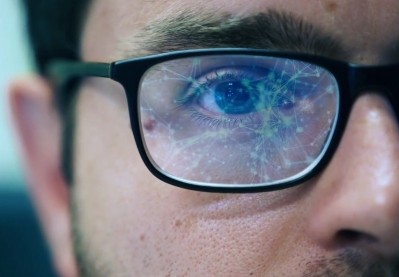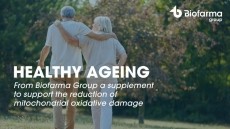Nourishing peptide possibilities: ‘From concept to optimisation in under a year,’ vows Nuritas’ founder

In identifying suitable peptide candidates, the innovation offers the possibility of simultaneously promoting muscle protein synthesis whilst limiting its degradation – the keys in tackling age-related muscle atrophy.
It is a prime example of a data-driven approach that aims to accelerate current product development cycles, according to Nuritas’ founder and CSO Dr Nora Khaldi, who has been at the helm of the Irish-based firm since 2014.
“The prevailing benefit of the Nuritas platform is the ability to utilise AI and machine learning to open new smarter, faster and more accurate pathways to discovery,” she explains.
“By combining predictions generated by machine learning with in vitro in house laboratory testing we are equipping our platform with the knowledge to discern what makes a peptide prediction effective in vivo.
“This has created unparalleled data driven technology that allows us to progress from concept to lead optimisation in as little as a year.”
Nuritas’ collaborations
Assurances like this have piqued the interest of the food and nutrition industry, who in response to a more health-conscious public, look to introduce a new generation of functional foods and supplements, created using advanced screening techniques.
The same technology is responsible for the discovery of bioactive peptides such as PeptAIde, an ingredient that was the culmination of a partnership between Nuritas and BASF formed back in January 2017.
In January of this year, the peptide-mining theme continued with a partnership formed with Pharmavite that promised a more targeted approach to dietary supplementation.
The approach also turned the heads of food giants Nestle, which in February teamed up with the Ireland-based firm in a discovery of bioactive peptide compounds from food sources.
Such is the innovative nature of this approach, only a handful of firms have ventured into this realm and even then are found in the pharmaceutical sector.
Companies that come to mind include the Israeli-based outfit Pepticom, which use an AI-based approach to discover peptide molecules to address metabolic and Alzheimer’s disease.
In commenting on the future possibilities this blend of AI, deep learning and nutrition could have Dr Khaldi points to a number of areas, alongside age-related conditions, that this approach could excel in.
“We definitely see the use of AI as key in age related conditions but also more generally for all health conditions at large,” she said.
“We have developed technology that is widely transferable to different disease areas and have proven results in crucial areas such as anti-inflammation and prediabetes.
“By harnessing the immense potential of AI and deep learning, our powerful discovery platform can also be applied to important areas of unmet medical need, even when no targets have been identified.”
A computational approach
For now, the focus is on maintaining muscle mass and helping to prevent its loss during the passage of time.
A start date is imminent for the double blind placebo trial that combines the expertise of Maastricht University researchers with Nuritas’ hi-tech computational approach.
“The trial is expected to look at short term immobilisation, where we will cast the leg of individuals and measure the differences in muscle loss and build versus a placebo,” Dr Khaldi said.
“We will also follow the recovery of these individuals after the cast is removed. The outcome of this trial is very important for all types of patients during and after bedrest, which can occur as a result of illness, injury or other disorders. Recruitment for the trial is already under way.”
Dr Khaldi points out that even from the age of 30 onwards a significant number of people experience muscle mass loss so it is not an issue for the over 65s But she believes this is where the potential to make the greatest difference exists.
“The opportunity here is also very large for all types of patients during and after their bedrest in hospital or at home after injury, illness or other.
“Furthermore, with the biomarkers we are targeting here, we are opening the door for potential wider applications in important muscular disorders such as pompe disease, Duchenne muscular dystrophy and cachexia.”
















